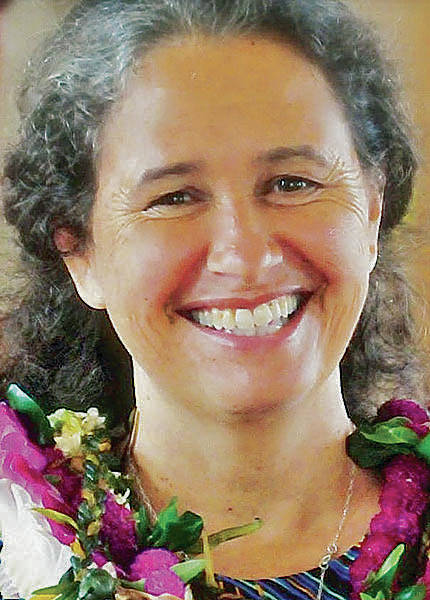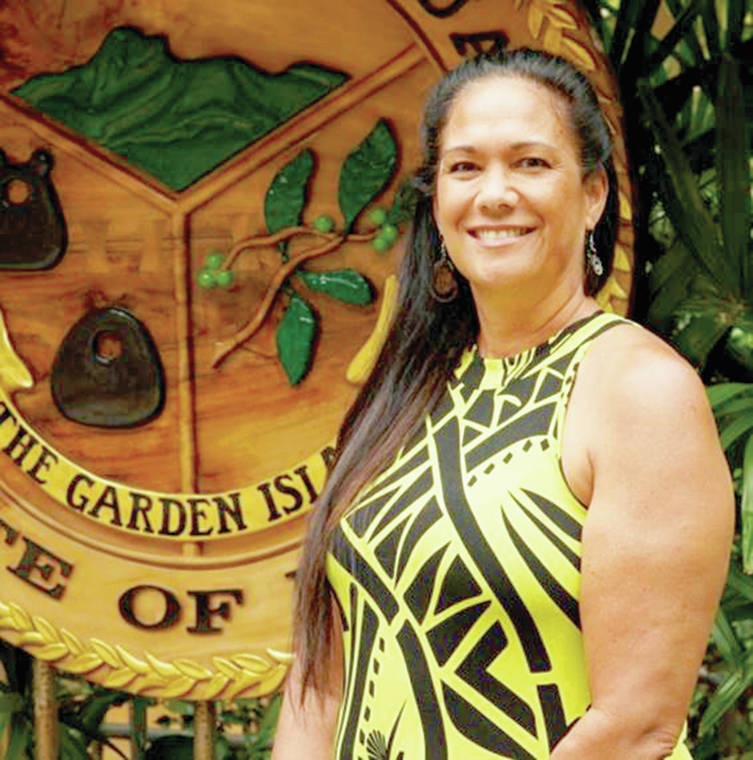LIHU‘E — The Kaua‘i County Council heard about 45 economic-recovery recommendations from Mayor Derek Kawakami’s Kaua‘i Economic Recovery Strategy Teams last week, including how to support local businesses, the importance of communications, the need for broadband and improved infrastructure and the long-term need to diversify the economy.
The list was put together over two months by industry-centered teams that have convened to address community needs during the coronavirus pandemic.
County Office of Economic Development Director Nalani Brun and OED Business Innovation Coordinator Diana Singh briefed the council on the progress made by the teams, noting short- and long-term milestones that were formed in mid-March, broken up into eight sectors: agriculture, business, construction and public works, education, finance, health care and tourism, and an encompassing “future team” looking at things like technology and sustainability.
There were also recommendations to the council for financial help, improved communication, policy changes and support, according to Singh’s presentation.
“Our real goals were two-fold,” Brun said. “One, to find actions that we could do in order to get us running as quickly as possible, as safely as possible. And, secondly, we just wanted to see what actions would actually turn the ship so we have better traction in the future to survive something like COVID-19.”
And while medium-risk businesses opened late last week, council Vice Chair Ross Kagawa felt the teams should focus more on providing concrete reopening dates and goals rather than broad ideas.
“Financial stress and harm can be even worse than probably catching COVID and coming out of COVID,” Kagawa said. “I don’t see the urgency. I don’t see the dates behind what is going to open. Economically, financially, I think the sooner we can open up the local economy and get people back to work is the better. And I don’t see any dates. I just see and hear general thoughts.”
Brun explained that it’s likely more businesses will be open by June 1, just without tourists, but that’s not the KERST teams’ decision. “We didn’t have the ability to put dates on things,” Brun said. “That is why we did the milestone work, which was ‘when this opens, we can do that.’”
Other KERST discussions have included campaigns to get Sunshine Markets reopened and financial webinars.
“We really encouraged our teams to think about how to not just rebuild things the way they were,” Singh said. “We don’t want our economy to be exactly the way it was before COVID-19. Ideally, we would build it to be stronger and more resilient in the future.”
The KERST initiative, created by Mayor Derek Kawakami to assist his decision-making, has some members of the County Council feeling left out.
Councilmember Felicia Cowden, for instance, was retroactively added to the KERST focused on agriculture, and said she has found it difficult to get a hold of the group as a whole, or even get a response to her inquiries.
“I haven’t gotten a single email,” Cowden explained. “If myself as a member of one of these teams, if that is any kind of indicator of the amount of inclusion, I am deeply disappointed.”
She continued: “Is there a reason for limiting council participation so profoundly? Is there a reason that we’re not allowed to participate or have information? Is there a reason we’re shut out?”
Brun explained that all the groups meet individually, working at each group’s own pace.
Councilmembers Mason Chock, Luke Evslin and Kipukai Kuali‘i are part of the education, construction and health care teams, respectively. Chock, who is the section lead for the education committee, offered that his group had met at least three times, and continues to meet.
Hearing council frustration, while not always directed at the OED but at the mayor’s administration as a whole, Brun expressed her desire to include the council in more discussions, the first by sending over the KERST recommendation report before release to the public. Singh noted a new website, kauaifoward.org, would be launched soon to provide recovery information, loan programs and more.
There is a larger issue at hand, councilmembers said. For the past two months, councilmembers have expressed their concerns about the lack of communication between the mayor’s administration and its body.
Councilmembers have noted an influx of angry emails and texts from constituents, which adds to frustrations when they are not at the table making direct decisions. But that shouldn’t be taken out on any one entity, especially during a time of crisis, Evslin said.
“From our own role here as legislators — I have also never been in the EOC (county Emergency Operations Center) — I am not part of these discussions,” Evslin said.
“Often we don’t see the new rules until they are in the newspaper. But under state law and county law, the mayor and governor have wide discretion in an emergency, because it’s so important for them to act quickly,” Evslin said. “And while I might have liked to personally be part of these conversations, I recognize the legislative branch doesn’t have authority over approving or rejecting emergency orders because it would slow down response time.”
•••
Sabrina Bodon, public safety and government reporter, can be reached at 245-0441 or sbodon@thegardenisland.com.








Bailout will be the economy.
Keep those checks coming.
…just keep those checks coming.
Aloha, our economy here in Kauai is fragile and without a solid industry all decisions making will fail. My grandparents had the sugar industry and we have the tourist industry. Until our leaders come up with a sustainable new industry we are still reliant on tourism.
Mahalo
Simple, Nalani & colleagues. Just get government out of the way and let markets solve this problem.
https://www.grassrootinstitute.org/wp-content/uploads/2020/05/Roadmap-to-Prosperity-1.pdf
RG DeSoto